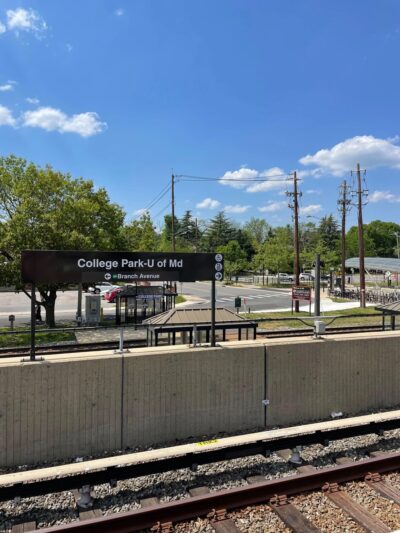
This editorial article is a part of Tech + Government Month 2022 of Technical.ly's editorial calendar. This month’s theme is underwritten by Spotify. This story was independently reported and not reviewed by Spotify before publication.
The company just announced plans to build a $30 million quantum tech manufacturing and research center for semiconductor chip development. With the anticipated help of that federal CHIPS and Science Act, which earmarked $52 million for US-based chip manufacturing efforts, the new facility will be a key component in a long-term goal for QCI: making quantum compatible with chips. The location for the center is yet to be determined, and will depend on what agreements the company can strike with state governments.
The center, which will be both a manufacturing facility and lab space, will host about 25 employees. Currently, the company completes its chip manufacturing through a contract manufacturer, and also has a facility in New Jersey. In the new spot, CEO Robert Liscouski said that the goal is to create a space that will allow the company to produce a few thousand chips per year.
The need for QCI’s own quantum space, Liscouski told Technical.ly, is because the chips are at the heart of all of the company’s work. A facility of its own will let QCI scale it ability to manufacture and boost its quantum work, including housing its quantum functions on a chip for large scale distribution of quantum computing.
The CHIPS and Science Act, passed earlier this year, is a piece of legislation designed to promote more semiconductor manufacturing on US soil.
“The longer-term road map for us is to be able to scale down our quantum capabilities onto a chip,” Liscouski said.
The CHIPS and Science Act passed earlier this year to promote more semiconductor manufacturing on US soil. Currently, approximately 12% of modern semiconductor manufacturing takes place in the US, a number that’s significantly lower than even 30 years ago. The act set aside $39 billion for manufacturing incentives and $13 billion for new research and development.
The act will fund research and development for chip manufacturing and programs to accelerate new technology in the sector. State and local governments are expected to receive funding in the first quarter of 2023. Liscouski said that he is unsure just how much QCI will receive from the act, but after speaking to a number of state and local governments, he does have hopes that at least a portion of the lab’s cost will be paid for by the federal act. If not, he plans to raise the money himself and still plans to build the facility.
Either way, Liscouski said he’s hopeful about the legislation and what it will mean for the quantum sector. He noted that it’s designed to kickstart companies reshoring their chip manufacturing and allows them to make a commitment to building new, innovative technologies closer to home.
“The US government is recognizing that technology development such as microprocessors or quantum chips and quantum computing and AI and all the high tech applications that we are focused on, have a real national security implication to it,” Liscouski said.
With the new facility, he’s hopeful that QCI can figure out a way to enable quantum computing on a chip. And it’s something he does think is plausible because rather than scaling down a huge quantum computer, the company is working on a photonic-based approach (referring to the physical science of light waves). But whether or not that’s possible, he thinks the lab will be key in creating a more functional, widespread use of quantum computing.
“This is not about just manufacturing chips that are going to go in automobiles or vacuum cleaners or household items or IoT types of devices,” Liscouski said. “This is really going to allow us to be able to ultimately implement and potentially accelerate the adoption of quantum technologies into the broader economic universe.”
Join the conversation!
Find news, events, jobs and people who share your interests on Technical.ly's open community Slack

DC daily roundup: April's biggest DMV funding stories; VCs head to Hill and Valley Forum; AI lobbying tripled

DC daily roundup: DMV innovation's movers and shakers; DDOT's social media troll; facial recognition tech at DCA and BWI

DC daily roundup: An athletic tech acquisition; a reflection on summer 2020's equity promises; data center taxes


